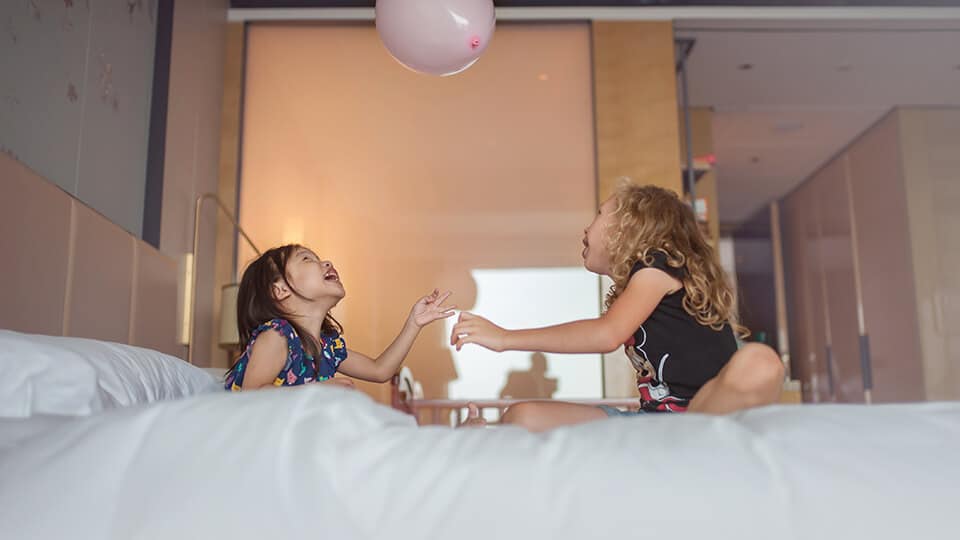
When a new baby joins the family, it’s expected that parents will lose sleep. However, the same can be said about adopted children of any age. In the rush of newness, many adopted children will struggle sleeping in the first weeks, months, or even years of their adoption. From trauma processing to attachment, there are many reasons a child may not sleep full nights after being adopted.
Adopted children need extra help to build their self-regulation skills and assurance their parents will meet their needs, even at nighttime. There is hope for parents losing sleep! A blog post by Families Are Forever gives the following ways to help your adopted child struggle less at bedtime:
- Anticipate your child’s needs. Your adopted child will benefit from help learning to identify their emotional and physical needs and how to meet them. Anticipating what your child may need before they need it, like giving them soothing items for bedtime or ensuring their bedroom temperature is comfortable, will help set your child up for better bedtime success.
- Establish predictable routines. Develop a calming, ritualized bedtime routine! Predictability helps adopted children feel control over their day.
- Ensure they’re getting enough sleep. Consider adjusting bedtime routines to allow your child the 10-12 hours of sleep they need for their development. Be physically and emotionally present if and when your child does wake up at night but try to limit your presence so they can learn to calm themselves on their own.
- Practice calming strategies during the day. Calming strategies like yoga, reading, puzzles, or coloring during the day teach your child avenues to self-regulate at night.
- Exercise and sensory breaks are necessary. Daily movement is necessary for your child to release energy! Sensory stimulation at night can help your child wind down for bed.
Attachment is the primary goal for parents of adopted children. According to Creating a Family, building attachment may involve immediately responding to every need, lots of touching, or cuddling until your child falls asleep. Once you feel your child is secure in their attachment, it is time to focus on creating sustainable sleep habits. Creating a Family suggests you ask the following questions:
- Does my child seem firmly attached during the day?
- Does he routinely turn to me for comfort and help?
- Has she been home long enough to feel secure?
- Was there something in his past history that makes nighttime a particularly anxious time?
“New adoptees are usually so overstimulated that they may blow right through sleepytime into an adrenaline-addled second or third wind,” says the National Council for Adoption. “Children with histories of prematurity, prenatal substance exposures, lack of early responsive, regulating caregiving, and stressful/traumatic experiences can literally be wired differently, with real neurologic differences in sensory processing and self-regulation.”
National Council for Adoption recommends carefully curating environmental cues to build your child’s circadian rhythms, as well as setting up your child’s bedroom without electronics and with lots of stuffed animals and photos of loved ones. Utilize white noise machines, limited light, and aromatherapy scents like lavender and chamomile to help your child relax.
It is important to remain patient with yourself and your child when sleep struggles arise. In a video by Empowered to Connect, Dr. Karyn Purvis of the Karyn Purvis Institute of Child Development (KPICD) encourages parents to promote healthy sleep by building trust with their child.
“One of the most common questions I get is about sleep disruptions in our kids,” says Dr. Purvis. “All children are fearful at night and all children have sleep disruptions, but for our children [with trauma histories], what’s driving those sleep disruptions is far deeper and far more intense.”
Dr. Purvis tells parents to be purposeful about sleep and how to solve sleep issues, as well as to understand what may cause sleep challenges. Traumatic life experiences cause children to have chronic hyper vigilance. Dr. Purvis encourages parents to address sleep issues by thinking in terms of body, soul, and spirit, determining the cause of sleep challenges.
For example, children who have been harmed in the night will be particularly fearful at being alone at bedtime. Additionally, many children who come from international orphanages have been locked in rooms with 30 or 40 children at night and did not receive the necessary comfort when scary situations, like storms, occurred.
“When our children are afraid, celebrate the fact that they come to you,” says Dr. Purvis. “There are dozens, hundreds, thousands of creative ways to solve sleep disruption while earning the trust of your child.”
To accommodate these challenges and address fears, Dr. Purvis warns against sleep methods, even those considered to be Christian sleep models, that don’t exhibit trust or are harsh. Adopted children must know they can call out to their parents and receive love and comfort. She suggests solutions like having children help lock doors at night, purchasing a special bedroll for children to sleep on by their parents’ bed when they are afraid, or using a baby monitor so the child can call out when they need comfort.
“Remember the heart of God when you solve any issue with your child,” says Dr. Purvis. “The heart of God draws us to Himself. The God that I know, the God that I love, the God that I serve is a God of deep love and compassion. He is a God in whom I can always trust. I always know I can lean on Him. And I always know I can cry out and He will answer me. My God celebrates my dependence on Him, my need for Him, my adoration and love for Him. We want our children to come to us and hear us say, ‘I am so glad you told me what you needed. Let’s work that out.’”













